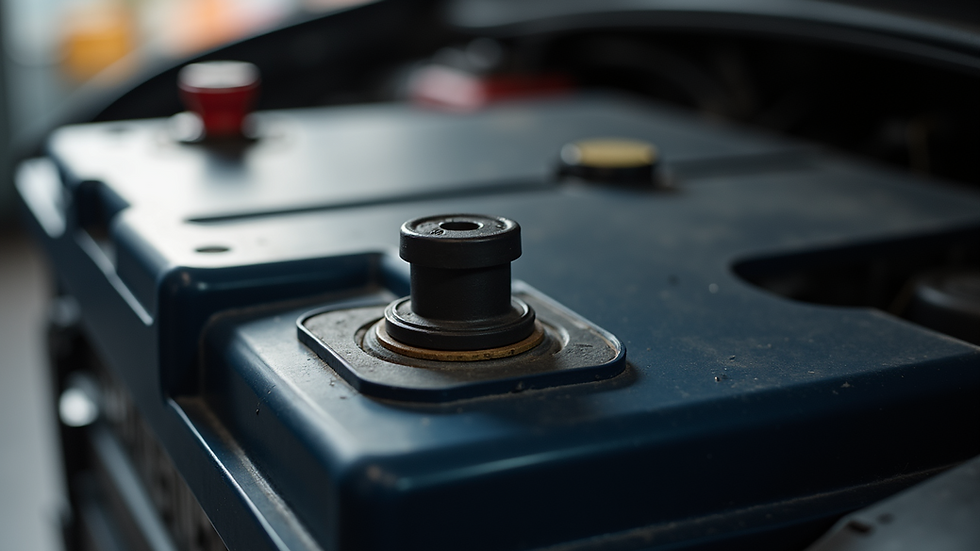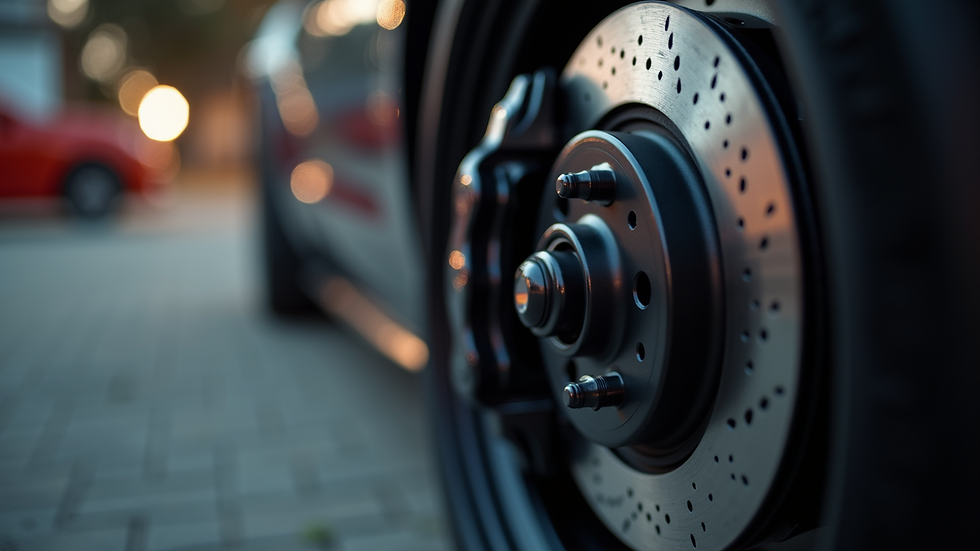Common Auto Repair Issues Demystified
- dougborgas
- Oct 8, 2025
- 3 min read
Car troubles can be a real headache. I’ve been there, staring at my dashboard wondering what that weird noise means or why the check engine light just won’t go off. The good news? Most common car repair problems are easier to understand and fix than you might think. Let’s break down some of the usual suspects and what you can do about them.
Understanding Common Car Repair Problems
Cars are complex machines, but many issues pop up regularly. Knowing what to look for can save you time, money, and stress. Here are some of the most frequent problems I’ve seen and how to handle them.
1. Dead Battery
A dead battery is probably the most common reason a car won’t start. Batteries don’t last forever, usually around 3-5 years. If your car struggles to start or the lights dim when you turn the key, it might be time for a new battery.
What to do:
Check for corrosion on battery terminals.
Make sure the battery is securely mounted.
If the battery is old, replace it before it dies completely.
Keep jumper cables handy for emergencies.

2. Brake Issues
Brakes are crucial for safety, so don’t ignore any squeaking or grinding sounds. Worn brake pads or low brake fluid can cause problems. If your brake pedal feels soft or the car pulls to one side when braking, get it checked immediately.
Tips:
Listen for unusual noises when braking.
Check brake fluid levels regularly.
Replace brake pads before they wear down completely.
Have a trusted mechanic inspect your brakes yearly.
3. Overheating Engine
An overheating engine can cause serious damage. If your temperature gauge rises above normal or you see steam from under the hood, pull over and turn off the engine.
Common causes:
Low coolant levels.
Broken radiator fan.
Leaking hoses or radiator.
Faulty thermostat.
What I do:
Check coolant levels regularly.
Look for leaks under the car.
Schedule a cooling system inspection if overheating happens more than once.

What is the 30 60 90 Rule for Car Maintenance?
This rule is a simple way to keep your car in good shape by doing specific maintenance tasks at 30,000, 60,000, and 90,000 miles. It helps prevent bigger problems down the road.
30,000 miles: Change oil and oil filter, check brakes, inspect tires, replace air filter.
60,000 miles: Replace spark plugs, check battery, inspect belts and hoses, flush coolant.
90,000 miles: Replace timing belt (if applicable), inspect suspension, check transmission fluid.
Following this schedule keeps your car running smoothly and can save you from costly repairs later. I always keep a checklist handy and stick to it.
Why Your Car Might Be Making Strange Noises
Cars talk to us through sounds. Some noises are harmless, but others signal trouble.
Squealing: Often means worn brake pads or loose belts.
Grinding: Could be brake pads worn down to metal or transmission issues.
Knocking: Might be engine problems like bad spark plugs or low oil.
Clicking: Usually related to the battery or starter motor.
If you hear something unusual, don’t ignore it. Early diagnosis can prevent bigger headaches.

How to Find a Trustworthy and Affordable Mechanic
Finding a mechanic you can trust is key. You want someone honest who won’t upsell unnecessary repairs or hide fees. I’ve found that local shops with good reviews and clear communication are the best bet.
If you’re looking for an affordable mechanic who values transparency and straightforward service, check out Honest Mechanix Auto Repair. They focus on giving customers peace of mind with honest advice and no confusing jargon.
Tips for choosing a mechanic:
Look for certifications and experience.
Read online reviews.
Ask for a written estimate before work starts.
Choose a place that explains repairs clearly.
Keeping Your Car Healthy Between Repairs
Regular care can keep your car running longer and avoid surprise breakdowns. Here are some easy habits I follow:
Check tire pressure monthly.
Keep an eye on fluid levels (oil, coolant, brake fluid).
Listen for new noises or changes in how the car drives.
Wash your car regularly to prevent rust.
Don’t ignore dashboard warning lights.
Taking a little time for these simple checks can save you from costly repairs and keep your car safe on the road.
Cars don’t have to be a mystery. With a bit of knowledge and the right help, you can handle common car repair problems confidently. Remember, a reliable mechanic and regular maintenance are your best friends. Keep your car happy, and it’ll keep you moving without surprises.




Comments